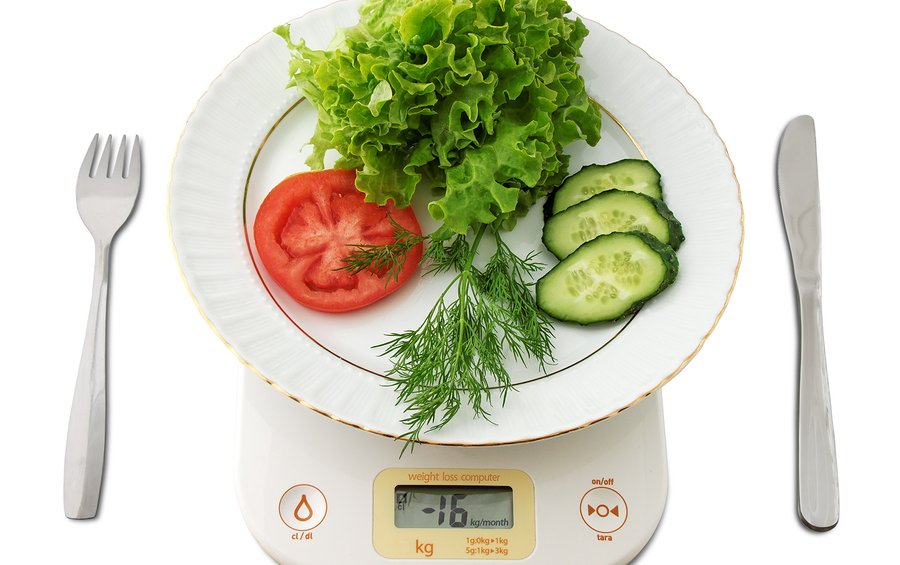Restricting the number of calories you consume each day can certainly help you in a quest to reach a healthier weight. But is there any benefit to lowering your calorie intake if you are already in the normal weight range? New research is once again confirming what Jon Barron has been saying for years: that lowering your caloric intake can potentially slow the aging process and increase your life span.
The study, which took place at the Pennington Biomedical Research Center in Baton Rouge, Louisiana, found that reducing caloric intake by a relatively small amount may be associated with a longer life and slower aging.1 Redman, Leanne M.; et al. “Metabolic Slowing and Reduced Oxidative Damage with Sustained Caloric Restriction Support the Rate of Living and Oxidative Damage Theories of Aging.” Cell Metabolism. 22 March 2018. Accessed 24 March 2018. http://www.cell.com/cell-metabolism/fulltext/S1550-4131(18)30130-X. These results were based on an investigation involving 34 men and women in overall good health. Approximately half of the subjects were normal weight, and the remainder were only slightly overweight, and they had an average age of 40.
All of the participants were instructed to decrease their daily caloric intake by 25 percent for a two-year period. They were provided with three nutritious diet options to model and help them achieve this goal, but ultimately they had sole control over what they chose to eat. Not surprisingly, most of the volunteers did not sustain a 25 percent calorie reduction, but they did sustain a 15 percent reduction, which is still quite impressive over the course of two years.
The subjects lost an average of 20 pounds, most of which occurred in the first year of the research as their bodies adjusted to eating a little less. And there were extensive changes within their bodies as well in several areas tested by the investigators. There was a notable decrease in their metabolism, their core body temperatures dropped, blood sugar and insulin levels were reduced, and the hormones that affect metabolism fell markedly.
All of these biomarkers have been linked to both a slowdown of the aging process and living longer. The mechanism behind how this works is not yet fully understood, but the researchers theorize that these changes may curb the accumulation of damaging oxygen radicals formed in the body, helping to protect us at the cellular level. Other researches believe it has more to do with the lowering of plasma insulin levels.
While the study is obviously limited by its extremely small sample size, it does build on the findings of earlier research that focused on animals instead of humans. We are never certain that animal trials will produce the same effects in people. But in this case, the outcomes of the current research are very much in line with a 2017 study at the National Institute on Aging in Bethesda, Maryland that involved rhesus monkeys, which showed an association between eating fewer calories and a potential lifespan increase of up to 18 years.2 Mattison, Julie A.; et al. “Caloric restriction improves health and survival of rhesus monkeys.” Nature Communications. 17 January 2017. Accessed 25 March 2018. http://www.nature.com/articles/ncomms14063.
So, how can you put this to work for your health? Start by trying to cut back just a little on your daily calories. After all, in the current study, a 15 percent reduction in calories made quite a difference. For men, a healthy daily intake is approximately 2,000 calories and for women, that number is approximately 1,500 calories. So you can strive to cut back by 200 to 300 calories a day, as long as you don’t sacrifice nutrition. It really comes down to trimming your portion sizes by just a bit to shave off calories here and there.
If you are overweight, you might want to begin determining your typical daily calorie intake and getting yourself down to the 2,000 or 1,500 calorie mark first. Make your adjustments not just by reducing the number of calories, but by making smart dietary choices as well. It is much more important to make positive long-term changes to your diet than simply cut down on calories. Swap out processed foods and those high in sugar and fat for a lower-calorie diet based on whole grains, fruits and vegetables, and lean sources of protein, and you will improve your chances for living a longer and healthier life. Then again, if you subscribe to the lower plasma insulin theory to explain why lowering calories extends life, you might want to include a glucoregulatory supplement as part of your dietary regimen.
References
| ↑1 | Redman, Leanne M.; et al. “Metabolic Slowing and Reduced Oxidative Damage with Sustained Caloric Restriction Support the Rate of Living and Oxidative Damage Theories of Aging.” Cell Metabolism. 22 March 2018. Accessed 24 March 2018. http://www.cell.com/cell-metabolism/fulltext/S1550-4131(18)30130-X. |
|---|---|
| ↑2 | Mattison, Julie A.; et al. “Caloric restriction improves health and survival of rhesus monkeys.” Nature Communications. 17 January 2017. Accessed 25 March 2018. http://www.nature.com/articles/ncomms14063. |











